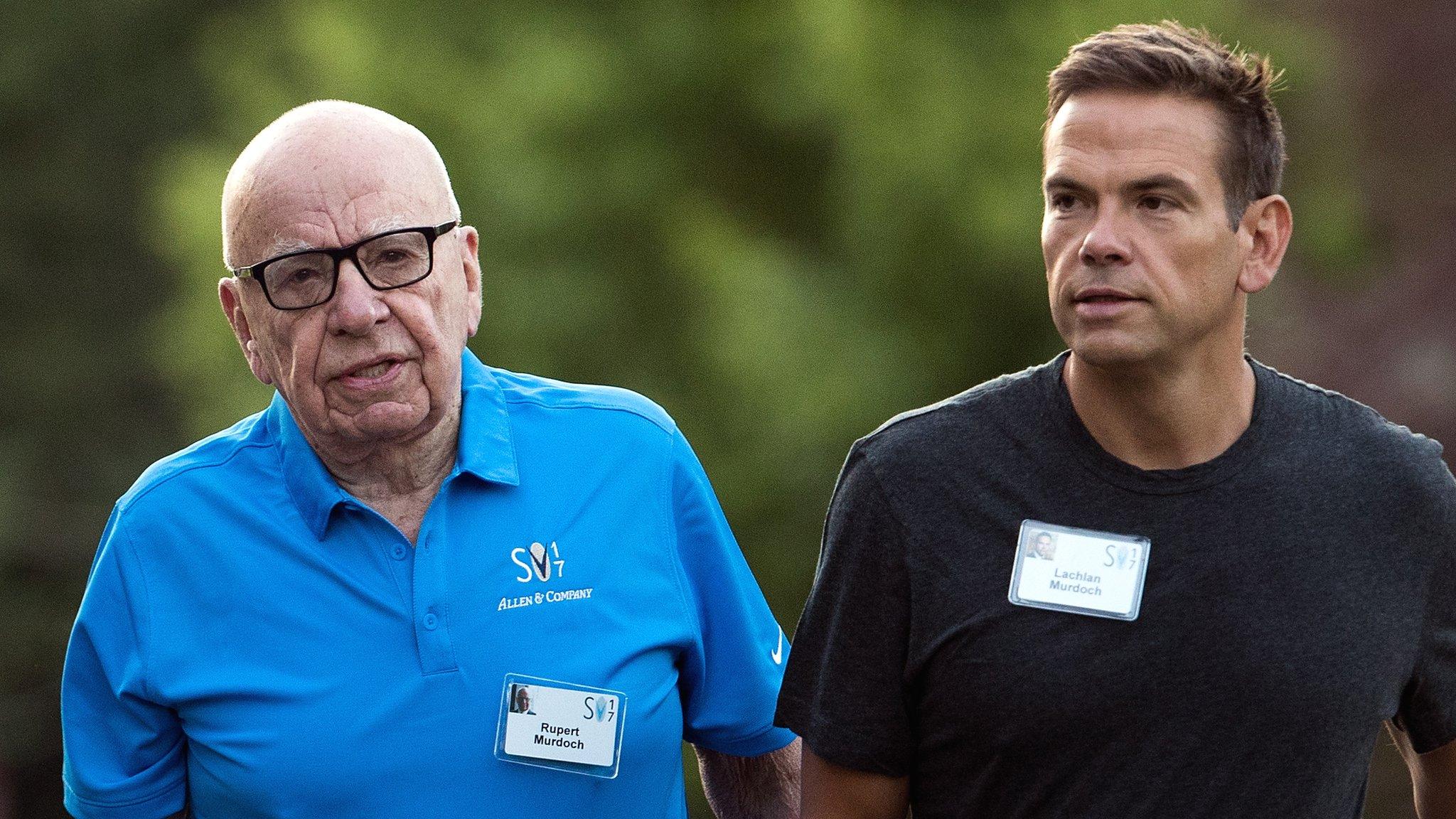Who is Rupert Murdoch?
- Published
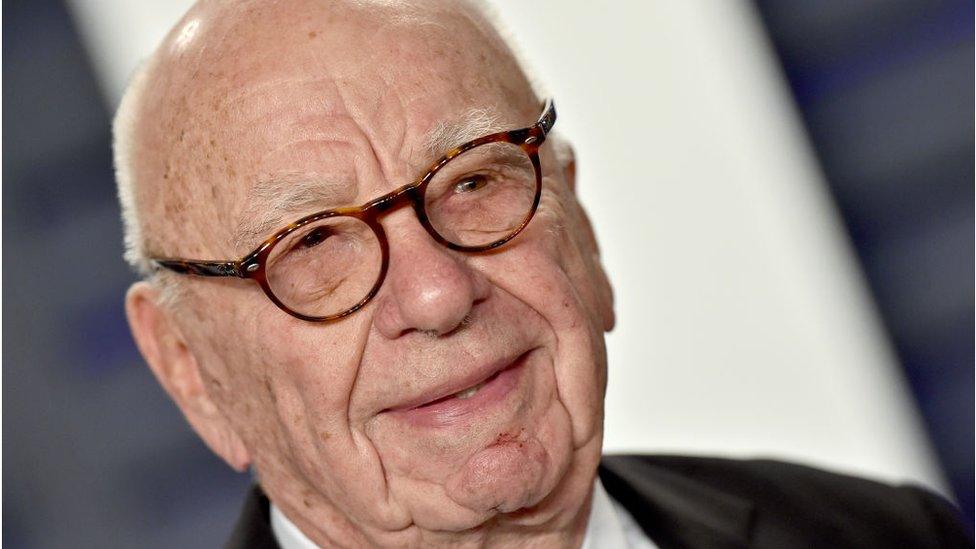
Rupert Murdoch stepped down as chairman of Fox and News Corp last year, seemingly heralding the end of a career as one of the world's most influential media tycoons.
However, the mogul wasn't quite done with his media empire, and tried to change a family trust to give control of News Corp and Fox News to his eldest son Lachlan when he dies.
Although he lost the court battle against three of his other children - Prudence, Elisabeth and James - in what was dubbed a real-life "Succession" battle, it was another example of his ruthlessness in business.
Over the last few decades, the 93-year-old has helped shape the media landscape in the UK, US and Australia with his ownership of powerful newspapers such as the Sun and the Times and broadcasters such as Sky and Fox News.
However, he is also seen as a controversial figure and has attracted his share of scandal.
In 2011 he was forced to close down the UK's biggest newspaper, the News of the World, after it became mired in allegations of phone hacking.
His papers have also been accused of distorting the news to ensure his political allies won elections.
Small beginnings
Born in Melbourne in 1931, Murdoch developed an interest in the media at a young age. While at Oxford University in the UK he tried to buy the student newspaper and flirted with left-wing politics - putting a bust of Lenin on his mantelpiece and canvassing for the country's Labour party.
His father Sir Keith Murdoch, one of Australia's most distinguished newspapermen, died in 1953 and left the family a controlling share of a single newspaper, the Adelaide News. Rupert returned from Britain to run it aged 22.
He quickly expanded the business, buying a string of other titles in Australia and New Zealand and growing their circulation by employing racy tabloid techniques imported from the UK.
He was known to personally write headlines and redesign pages, although he claimed he gave editors a great deal of freedom. "The only ones who claim I don't are the ones who don't know how to use it," he once said.
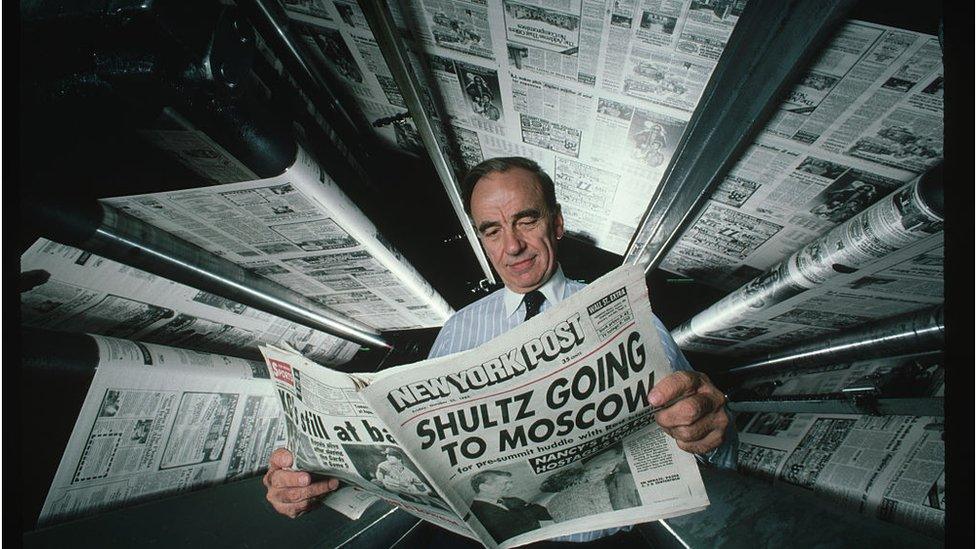
Rupert Murdoch in 1985
But Murdoch's ambitions were global.
In 1968, he bought the UK's News of the World and within a year had picked up the ailing Sun newspaper, relaunching it as an irreverent tabloid.
Circulation soared thanks to its sex-and-sensation formula and it went on to became Britain's biggest-selling daily newspaper.
His papers were frequently accused of political manipulation, while his critics have called him a cynic who degraded standards of journalism by pandering to a sensation-seeking public.
However, the tycoon's loyal admirers have always heaped praise on him, applauding the businessman for his chutzpah and astonishing willingness to take risks.
In 1986, by now owner of the UK's Times and Sunday Times newspapers as well, Murdoch moved all four newspaper titles into a huge printing plant in London and sacked 5,000 workers.
The ensuing battles with strikers outside the Wapping site heralded a revolution in Britain's newspaper industry as old ways of working were ditched.
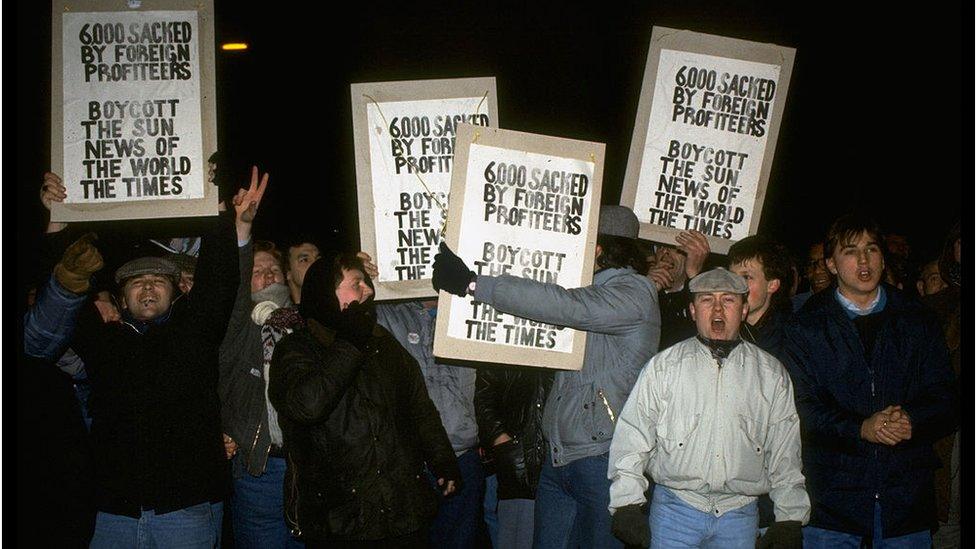
Printworkers demonstrating on picket line outside newspaper owner Rupert Murdoch's Wapping, London plant
A television revolution followed, as Murdoch went on to launch the satellite TV service Sky in Britain.
Despite criticism of its programmes, satellite dishes soon became commonplace on UK homes and Sky acquired its rival BSB to become hugely profitable.
Among other things it bought the rights to screen English football's newly formed Premier League in 1992, cementing its position in the media landscape.
But Murdoch had his eye on a bigger prize and began to focus on the US, where he had gained a foothold in 1976 with tabloid the New York Post.
In 1985, News Corp bought 20th Century Fox, establishing America's fourth major television network, Fox, and handing Murdoch a Hollywood movie studio.
Fox shows such as the Simpsons cartoon series sold around the world, while the Fox News network saw the emergence of a populist, right-leaning perspective in American TV news.
Too much control?
By the late 1980s Murdoch's empire had wracked up near-crippling debts, but it survived, going on to turn HarperCollins into a leading book publisher and buying Star TV in Hong Kong, which broadcasts to the whole of Asia.
However, there were growing concerns over how much control he had over the media landscape and his influence on politics.
"People say we're anti-competitive when we do something which is open for anybody in the world to do," he once said.
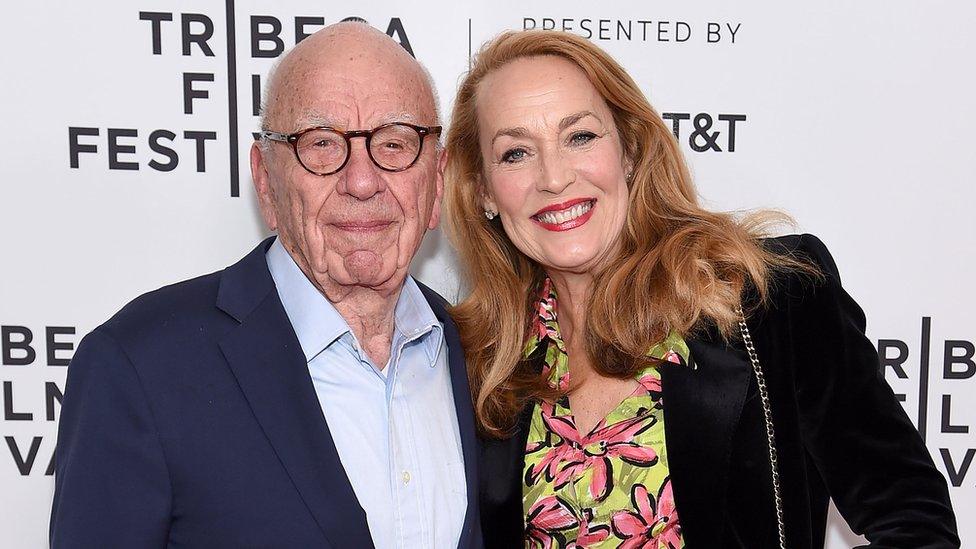
Rupert Murdoch married fourth wife Jerry Hall in 2016 but they divorced five years later
During the the 1980s and early 90s, Murdoch's publications were generally supportive of the reigning Conservative government.
But prior to Tony Blair's election in 1997, he switched sides after inviting the politician to meet him in Australia, telling his papers to tone down their attacks on Labour.
It was part of a trend of backing winners. One former Downing Street official from the time complained that Murdoch was effectively a member of the cabinet.
The tycoon has also had dealings with other politicians over the years including Canadian Conservative Prime Minister Stephen Harper and US Presidents Barack Obama and Donald Trump.
Controversy
Murdoch faced further criticism in 2011 when journalists at his UK newspaper the News of the World were found to have hacked the phones of countless celebrities and of the murdered teenager Milly Dowler.
Members of the House of Commons Culture Committee described him as "not a fit person to exercise the stewardship of a major international company".
Watch: The moment Rupert Murdoch was attacked
He was forced to close the newspaper and make a humiliating apology. The scandal, for a while, curtailed his plans to expand his business, although he soon went on to do more deals, well into his ninth decade.
He has been married five times, first in 1956 to Patricia Booker, a former shop assistant and flight attendant from Melbourne.
He divorced his second wife, Anna Torv, after 32 years together and his third wife, TV executive Wendi Deng, in 2013.
The mogul married former model Jerry Hall in 2016. The couple went on to divorce within five years.
In 2023, the billionaire abruptly ended an engagement to radio host Ann Lesley Smith.
His fifth marriage took place earlier this year, at the age of 93, when he tied the knot with Elena Zhukova, 67, a retired Russian biologist.
Until the recent court battle, the tycoon had had close relationships with his children.
Daughter Elisabeth and son James have held various senior positions in their father's empire, although James resigned as a News Corp director in 2020, stating it was "due to disagreements over certain editorial content published by the company's news outlets and certain other strategic decisions".
It was son Lachlan who emerged as the heir apparent, taking over the Fox and News Corp businesses last year, and whom Murdoch wanted to give the most voting shares and power to after he dies.
Lachlan is thought to be more conservative than his siblings and would preserve the legacy of Murdoch's media brands.
The decline of the newspaper industry in recent years has been hard on some Murdoch titles. Recently he was involved in a deal to sell Fox to Disney - although not its news operation - and Sky to Comcast.
This, he felt, would free the company of parts of the business that had been losing revenue.
The Murdoch family's net worth is currently estimated to be $22.5bn (£17.6bn) by Forbes magazine.
Related topics
- Published10 December 2024
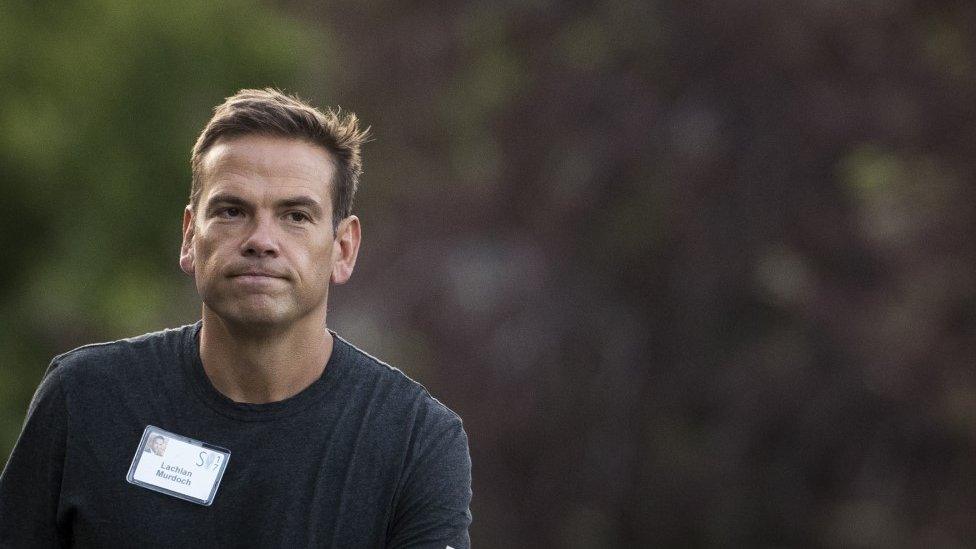
- Published21 September 2023
